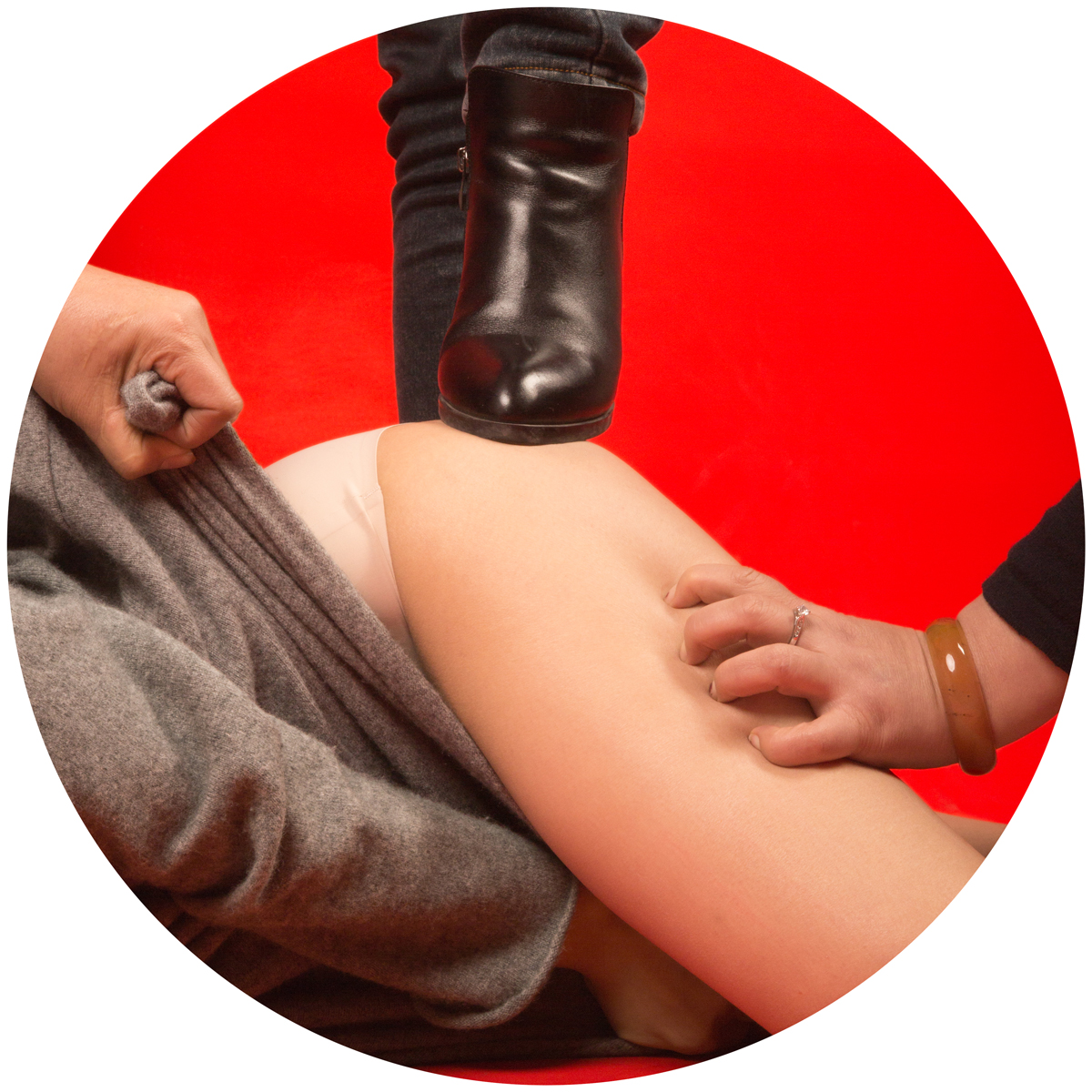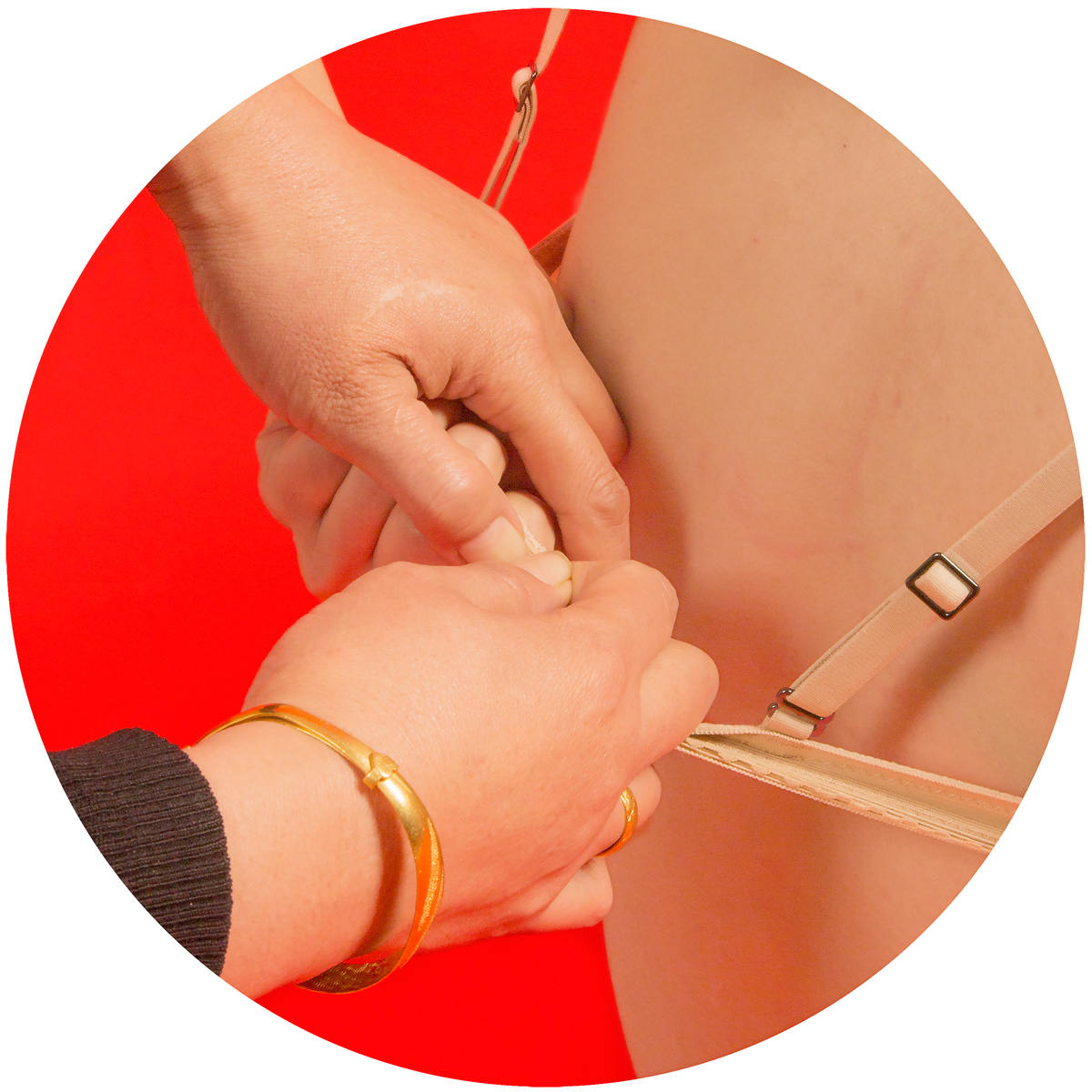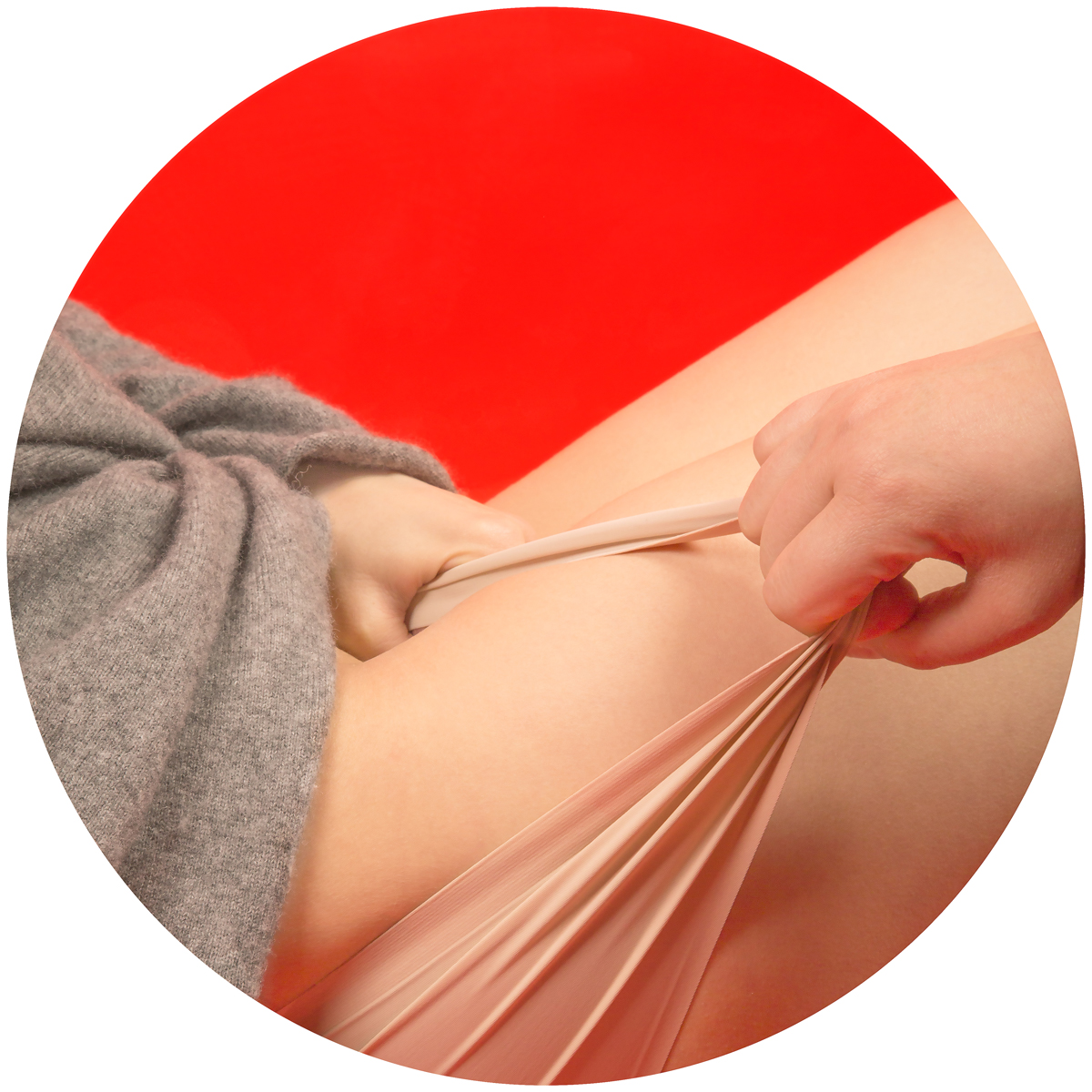Q&A: Zihui Song
By Hamidah Glasgow | July 26, 2018
Zihui Song (b. 1990, Xi'an, China) is an artist works in China and the United States. Song received her BFA from Xi'an Academy of Fine Arts in 2013 and she holds an MFA in Photographic & Electronic Media from Maryland Institute College of Art. With the use of photography, video and art installation, her work explores internalized misogyny as well as the complexities of women's bewilderments and identities in the context of Chinese patriarchal society. Song’s work has been exhibited internationally in a variety of venues, her latest shows including Song Zihui: Women’s Power | The Ruin of Representation, China; VAFA 2016 Film Festival, Macau; Project 1612 Film Festival, USA; Qifang Cinephile Collective 2016 Overseas Chinese Screenings, Traveling Screenings in China.
HG: Tell me about this phenomenon whereby wives are getting together to take physical revenge on their husbands’ mistresses?
ZS: From 2015, videos and photographs showing women beating up their partner’s alleged mistress have become an internet trend in China. There are millions of results if you search “Beating the xiaosan (homewrecker)” in Chinese and the pictures of these violent acts are quite ruthless and vulgar. A lot of women in these videos are speaking dialects and living in the less-developed cities, they often invite their friends or family members to confront the “mistress” together. Middle to upper class women have also involved in this kind of activities but there seem to be fewer visual evidence appeared compare to working-class women and domestic workers. Since the emergence of the mistress dispeller, a business model to drive away the mistresses using various methods, has brought a much more decent and convenient way for the upper-middle class women, there is no need for them to confront such conflicts. However, there is a pattern of women who took parts in these violent incidents. It typically began with an interrogation, following up with slapping the victim’s face, pulling their hair out, stripping them naked and slut-shaming the victim to attract bystanders in the meantime. But I’ve also seen a few videos showing vicious actions far beyond my imagination, there is a video shows a group of women beaten up an alleged pregnant “mistress”, besides all the actions I’ve mentioned above, the perpetrators even stepped on the victim’s belly and continually kicked her genitals, the whole scene was extremely brutal and disgusting.
HG: How and when did this start?
ZS: This is the phenomenon has only caught my attention since the prevalence of the user-generated networks such as Weibo (a micro-blogging site like Twitter), as well as video streaming and sharing services like Youku and Tudou. I assume the act of “beating the mistress” could have happened a long time before the internet became the mainstream media in China. This phenomenon has intertwined causations including societal, gender, historical, economic and media-related issues that each can be discussed and researched in depth. However, there isn’t yet any scholarly articles or comprehensive analysis of this issue that I could find when I was making the work. In respect to my practice, I paid more attention to the feminism and gender aspects of this phenomenon, more specifically, I’m interested in the power of China’s patriarchal culture and how it influences both women and men to perform different gender roles here. I believe the patriarchy system has divided women into different groups and it makes them against each other, women felt intimidated by their own kind in this scenario. These prejudices and violence against women themselves have also reflected the issues of internalized misogyny in China.
HG: You mentioned that you thought this had to do with internalized misogyny. Can you tell me more about that?
ZS: The issues of sexism and misogyny have always been around in China and I think people’s opinions of these phenomena have become increasingly polarized online. But my concern was the misogynist culture has affected women’s ideology and many of them have already internalized this social concept. The patriarchy mentality enforces women to see themselves through males’ perspectives. It restricts women’s behaviors and their developments, it reduces women self-esteem and self-confidence. Moreover, it influences women to watch and discipline each other. For those perpetrators, they weren’t just punishing someone for their own benefits, they also legitimatized their violence act in the name of the moral high ground. The whole situation is still like what Kate Millett said in Sexual Politics, “…the male participates in both worlds, empowered by his superior social and economic resources to play the estranged women against each other as rivals.”
HG: Why did you decide to portray the issue the way you have?
ZS: Originally, I was planning to make this work as a performance piece and the idea was to perform it in an art institution in China during a public event without advanced notice. I’ve always wanted to push the boundaries of the medium that I use, and I thought performance art would be a great way to interpret this issue. I want to see people’s reactions to this kind of incident in a public space since most people were quite desensitized in those violent videos. For me, the phenomenon is not only about the act of violence but also in relation to the issues of spectatorship. But the idea was quite bold and challenging for many art institutions in China. No one wants to take the risk at that time since they consider my proposal was anti-establishment. Accordingly, I created this photography series as a compromise. Although I can’t perform it in a public space, I still want to be a part of that work and endure the pain, and it was a lot easier for the actresses since they felt extremely uncomfortable to beat a girl in front of the public. Shooting in a studio has given me more controls of the work, I chose typical movements from those videos and asked the actresses to wear accessories that can render their social status and age group. I also chose to wear nude underwear instead of lingerie to de-sexualized the body and avoid the male’s gaze, it also intends to remove people’s stereotypes of the mistress’ image.
HG: Where do you see this phenomenon heading? What will happen next in this struggle between married and unmarried women. How does the husbands’ role play into this situation?
ZS: I think it will get better. Nowadays, a good number of Chinese women starts to realize their situation and they’re willing to change the status quo. Although there are still stereotypes of feminism and feminists, feminism is not a myth anymore. The Me Too Movement is already happening in China, and women’s collective experiences of repression are pushing them to unite at this time. There are indeed some women chose to blame the victims, but we can see the wind is changing. I think the struggle between married and unmarried women will not end unless they obtain full autonomy and independence in society. Judging from the history of women’s movements in the US, I believe there is still a long way to go for Chinese women.
It’s shameful that most husbands were absent and they chose to stay away from the incident, and I believe many of them are pleased to see women fighting for them, it reflects their masculinity and social status in another way. I believe those men are aware of the gender power structure and they are occupying the power. But the patriarchal system has damaged both men and women’s rights, only a few powerful men can benefit from the system, it’s a shame that most Chinese men don’t realize it and they’re actually supporting something in vain.
HG: Thank you for sharing your work with us.
All images © Zihui Song









